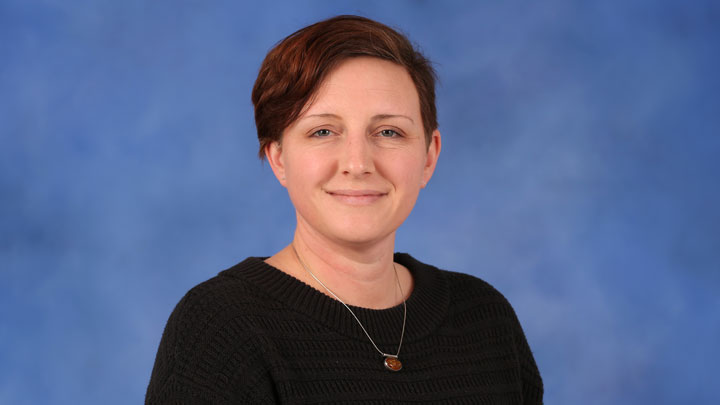Their droning chorus – is that a fleet of flying saucers? – seemed inescapable. When the cicadas of Brood XIX emerged across Alabama and elsewhere in spring 2024, they made a large impression on the regular above-ground inhabitants.
For birds, they became an unexpected smorgasbord.
For people who normally don’t study insects, they raised questions: Are they dangerous? Can we eat them?
For entomologists like Dr. Carrie Deans of The University of Alabama in Huntsville (UAH), a part of The University of Alabama System, the Brood XIX emergence offered a rare opportunity to learn more about a species that spends most of its life underground – and to share that knowledge with a public paying special attention to the natural environment.
Before the emergence, Deans discussed the insects on WAAY-TV, Channel 31. No, cicadas don’t pose a risk to humans or anything else. (They can’t even defend themselves against predators; their basic survival strategy is overwhelming numbers.) And yes, you can eat them – if you really want to.

Dr. Carrie Deans.
Michael Mercier | UAH
After the cicadas arrived, Deans presented a program for the Magnolia Trace retirement community, where cicadas were abundant and residents were curious.
“I got so many good questions. What do cicadas do? What are they good for? I was probably there an hour afterward talking to the residents about their experiences. These emergences get people talking about science, insects, ecology, all these things that wouldn’t necessarily be relevant to most people. It’s a great thing.”
Brood XIX was a novelty for Deans as well as her audience. Originally from Minnesota, she joined the UAH College of Science faculty at the start of the spring 2024 semester. Minnesota has annual cicadas but not the periodical variety like Brood XIX.
While cicadas are not her specialty – Deans studies agricultural pests such as the Japanese beetle – she’s as fascinated by them as any layperson. She highlighted some other research that has looked at the ecological impacts of cicada emergences, including John Parker’s work, published in Science (Vol. 382, Issue 6668, Oct. 19, 2023), on indirect effects of emergence on other insects and trees. The paper was frequently cited in news accounts of 2024’s loudest natural phenomenon.
“Having all these cicadas around had a huge impact on something like 80 different bird species,” Deans says. “Caterpillars that these birds are usually feeding on actually grow in number because they’re not being predated upon as much as in a typical year.”
When the ecosystem has more caterpillars, these caterpillars eat more oak leaves, and this impacts the acorn crop.
“The trees tend to produce fewer acorns the following year. But then the second year they actually produce a really big number of acorns. The caterpillars put a lot of pressure on the tree. Maybe there’s some overcompensation for that – which is pretty common in plants.”
A more direct result of the cicada emergence offers some good news for oaks and other trees.
“A lot of people wonder about the effect of cicadas on trees,” she says, noting that cicadas feed on xylem, plant vascular tissue that carries water from the roots to all parts of the tree. “These nickel-size holes in the soil where cicadas crawl up actually help ecosystems with water infiltration. The cicadas are basically aerating the soil.”
If there are any negative effects of cicadas feeding on trees, this benefit to the soil might counteract them, but Deans hasn’t found specific research yet.
Perhaps that question can be answered when Brood XIX returns in 2037.